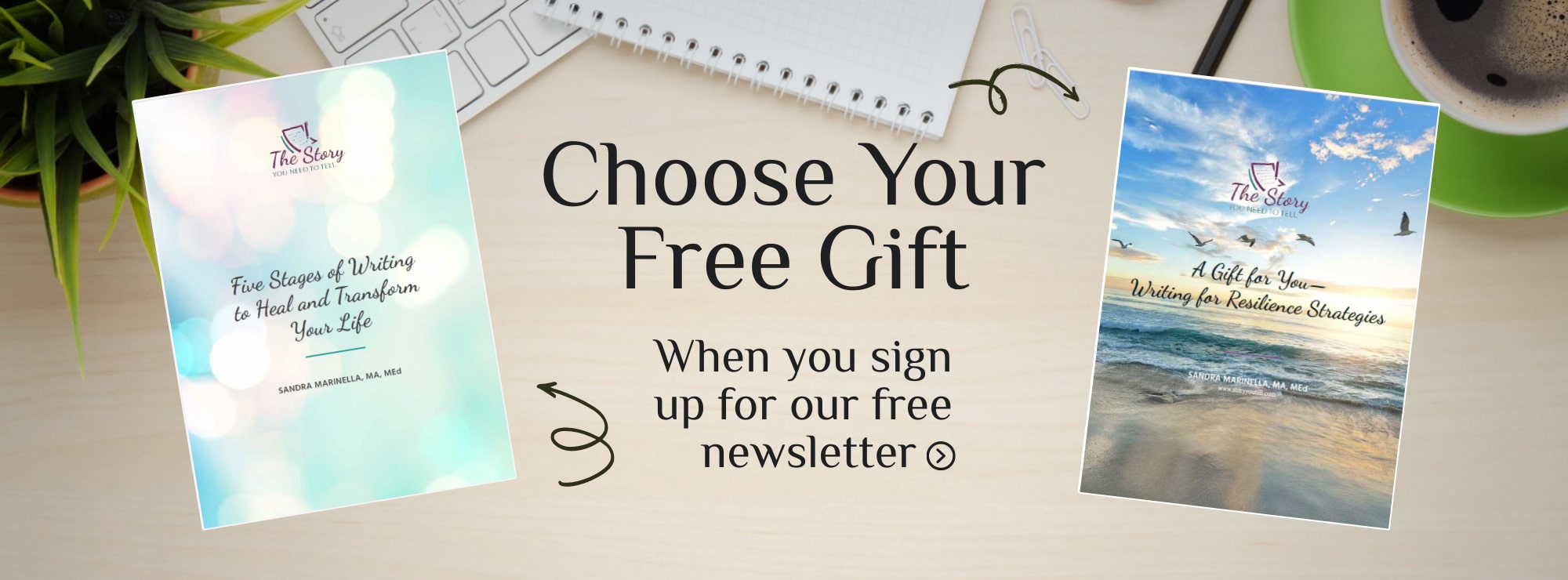A Crack in Everything
There is a crack, a crack in everything
That’s how the light gets in.
That’s how the light gets in
That’s how the light gets in.
Leonard Cohen
This song became stuck in my head last year as I prepared a keynote speech for one of my favorite groups of word lovers, the National Association of Poetry Therapists. Shortly before the conference last April, the COVID scare came smacking into our lives like a bird hitting the patio window. Conferences, workshops, and travel cascaded off our schedules and we began to try and find our way through a maze of confusion about what we could do and where we could go.
About the same time, I was planning my mother-in-law’s, 100th Birthday party for relatives and friends from across the country. Amid the preparations, I had a startling conversation with Edna. “I am okay with a little birthday party,” she explained, “But when I die, I don’t want any party. No service. My friends are dead and there will be no need to talk about me!” she announced decidedly.
“What?!” I looked at her across the patio table where we sat. “We always have parties and celebrations. A service is not for you or for your friends who are gone. It is to help all of us who are left behind. We have to rewrite our stories to move forward without you. It will be hard for us.” She looked at me doubtfully. “Mom,” I pleaded, “we need the ritual of celebrations.” She shrugged and hugged me, but I sensed she was not convinced.
A strong-willed woman, Steve and I had cared for her in Phoenix for the last four years. I had met her when I started graduate school in California. She was caught up in her work as a high school librarian, and I liked her spunk immediately. Often I would eat dinner at her house and as she would simmer the marinara sauce for manicotti, she would tell me tales of her past. She had been an independent journalist during World War II to the point of flying in the war planes. When her children were born, she became a librarian first at UCLA and then at Narbonne High School in Los Angeles. She was so good at what she did, it was said that Steve Jobs stopped by her library to give her the first computer in the Los Angeles Public Schools. In turn she helped Jobs bring computers into the schools, hosting the first computer lab. When she retired at age 75, they named her library for her—the Edna Marinella Library.
Last June amid COVID, we hosted her 100th Birthday. While no one flew into Phoenix, we hosted her friends and relatives from all over the country in a huge Zoom party to honor her for her incredible spirit and the positive gifts she brought to us. For days after this event she kept asking me how all those people crowded into one little computer screen, and she marveled at the many gifts sent to her from the Mickey Mouse sapphire necklace to the hand-knitted blankets to warm her legs. About a week later as she fingered her presents, she turned to me unexpectedly and said, “I feel loved.”
And she was. Last week as I presented my long overdue keynote Zoom speech at the NAPT Conference, I shared the words of the Leonard Cohen anthem, “There is a crack in everything.” I talked about how our words, our stories, and our poems allow us to touch, to see, and even to be the light. A few minutes after I finished, I headed to the home to see Edna who was now in hospice and nearing the end of her life. She wanted to hear how it went.
When I arrived, it was late afternoon, and the hospice nurse had pulled the blinds to keep out the sunlight. I helped raise her bed and fluff her pillows so she would be upright. Then we chatted. “I am going to leave here soon,” Edna explained to me. I told her I understood. “I am going to miss you.” Then she took my hand tightly, “Will you make one important promise?” I nodded. “Will you please have a big party for me. A really big celebration?”
“Oh, yes,” I promised. “We will have a party to honor you. A celebration of your wonderful life.”
“Please, it needs to be in California. That is my real home—and you can talk about me all you want.”
“I promise,” I said, tears flooding my eyes.
Relieved and smiling, she sunk back into her pillows. Then I opened the blinds just a bit and a stream of sunlight shot across Edna’s tiny, frail body, and we both marveled at the how it seemed the light was coming from her. From her body.
In the coming two days all her children and grandchildren arrived to visit with her. We shared stories and told her we loved her and held her hands as she passed. Indeed, that is how the light slips in.

